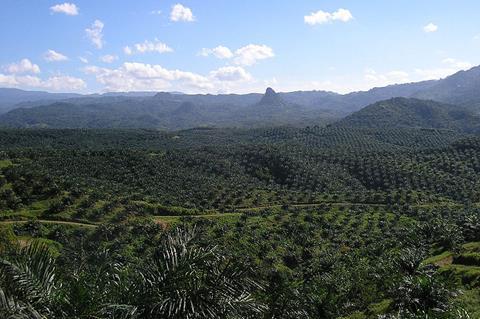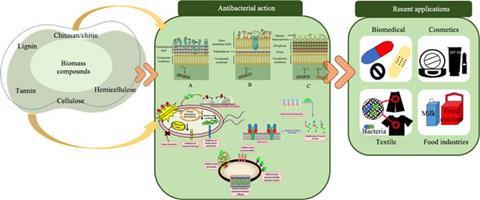In a bid to combat the rising threat of antibacterial resistance, researchers from the Research Center for Biomass and Bioproducts, National Research and Innovation Agency (BRIN), have delved into the characteristics and applications of biomass-derived antibacterial agents.

The study, led by Nissa Nurfajrin Solihat and a team of international collaborators, presents a comprehensive analysis of how naturally abundant biopolymers can be harnessed to develop sustainable antibacterial solutions.
READ MORE: Protect your teeth with fruit and coconut: antimicrobial effects found in biomass compounds
READ MORE: iBridge programme proposes alternatives to chemical factories
The World Health Organisation has identified bacterial resistance as a severe global issue, prompting the demand for novel antibacterial compounds. The research focuses on biomass derivatives such as polysaccharides (cellulose, hemicellulose, and chitosan) and polyphenol (tannin and lignin) substances, which exhibit the potential to inhibit the growth of both Gram-positive and Gram-negative bacteria.
“Antibacterial agents currently on the market are often derived from non-renewable sources, posing significant health and environmental risks,” explains Solihat. “Our work aims to bridge the gap in understanding the antibacterial properties of biomass derivatives, which are not only abundant but also renewable.”
Antibacterial agents
The study provides a detailed overview of the current trend in antibacterial agents derived from biomass, the challenges faced, and future perspectives. It also emphasizes the importance of understanding the source, chemical modification, types of bacteria, inhibition mechanism, and suitable applications of biomass derivatives in product development.

One of the key findings of the research is the potential of biomass derivatives to be used as antibacterial additives in various sectors, including cosmetics, healthcare, food processing, and textiles. The review also discusses the challenges and future perspectives, suggesting that the combination of biomass derivatives with silver nanoparticles could enhance antibacterial activity.
The research was supported by the Indonesia Endowment Fund for Education (LPDP) and is published in the Journal of Bioresources and Bioproducts. The findings of this study contribute to the global effort towards developing sustainable and environmentally friendly alternatives to conventional antibacterial agents.







No comments yet